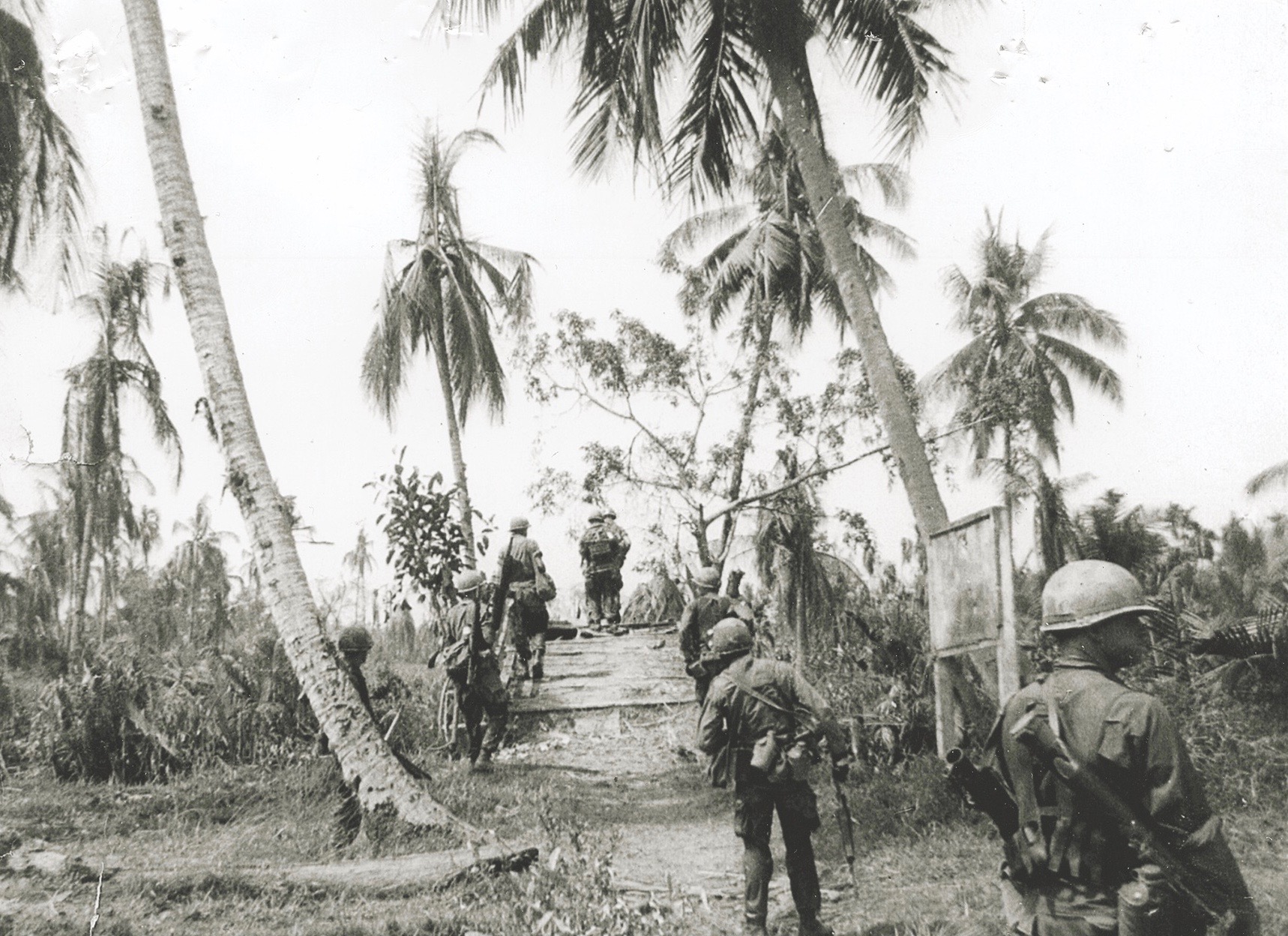For many U.S. soldiers in Vietnam, the war was not only a struggle for survival against the enemy, but also a struggle to maintain their fighting skills during periods of inactivity.
“Shortly after I took over, we had a down period where we got pulled out of the operation and put on an airstrip. Everybody wanted to lay down and rest,” recalled retired U.S. Army Lt. Col. Jeff Harvey. “I wanted to get up and move. That’s when we started practicing our reaction formations.” Harvey commanded Alpha Company in the 1st Battalion, 28th Infantry Regiment of the 1st Infantry Division, from Oct. 15, 1967 to March 31, 1968.
“We worked hard on training when we weren’t engaged,” Harvey told Vietnam magazine in an interview. “We worked hard on our reaction drills. We had basically three reaction drills for when we were moving and ran into combat. It helped us.”
Harvey was transferred from Fort Wainwright, Alaska, where he commanded a mechanized company, straight to Vietnam. He arrived in country on Oct. 1, 1967. “I guess I’d been an infantry officer for less than a year,” he said.
Harvey’s company provided security for the headquarters of Military Assistance Command, Vietnam, or MCAV, at Tan Son Nhut Air Base, just outside of Saigon. He experienced frequent contacts with North Vietnamese forces during the last four months of 1967 as well as during the communists’ Tet Offensive that began in January 1968 and continued through much of the year.
He still vividly remembers Vietnam. “Every part of Vietnam was different, it seems like,” Harvey said. “For the most part, where we operated, it was either triple or double canopy forests or rubber plantations—not very hilly. During Tet time, we were down by Saigon, so there were tidal canals and sorts of things that we had to contend with.”
Harvey took command at 6 p.m. on Oct. 15 on a night defensive position during the middle of an operation. “I took over in the dark and I also left in the dark,” he said. “My last operation was one at nighttime.”
“We were yanked out of the field and we went into guard MACV headquarters, Gen. [William] Westmoreland’s headquarters, and our command post was the air-conditioned movie theater. We ate in the mess hall and had hot showers and that sort of thing. That gave us like a seven-day R&R in country,” he recalled. “And then afterwards we were pulled back in and started operations and daily contacts again.”
During periods of inaction, Harvey insisted on practicing with his men for sudden encounters with the elusive Viet Cong guerillas who stalked the forests.
“I started emphasizing the fact that if they know what they’re doing and they’re doing it right, we had a chance at getting home alive,” he said. “We did it very well.”
“The day-to-day operations where nothing was happening—when we weren’t engaged—to keep them mentally sharp was a little bit of a challenge, but at the same time, I had some very good people,” Harvey said. “I was blessed with good people below me and I was blessed with good people above me.”
Harvey had mixed feelings about leaving the action when he was reassigned to Division HQ after six months. “It was exhilarating at times. When I left the company, it was one of those things where, ‘I’m glad I’m out of the bull’s-eye’ as far as day-to-day contact and danger, but at the same time I didn’t want to leave,” he remembered. “I think that’s what you find true with an awful lot of veterans.”
While working in division headquarters in the operations section, he focused on examining lessons learned.
When he returned home to the States, unlike some veterans, Harvey did not encounter protestors.
“I guess I was fortunate to be a company commander at the time I was, because up until Tet, in the minds of a whole lot of people, we were still winning the war—at least our portion of the war,” he said.
“At 2300 hours on Sept. 19, 1968, I landed in San Francisco and got on a red-eye about four hours later and landed in New York, still in my khaki uniform because that was all I had that didn’t smell like mold. A limo service got me up to Connecticut where my family was staying,” Harvey recalled.
Harvey views his service in Vietnam as the proudest experience in his life second to being a father.
“I was a young man working on being 28 years old. It was extremely rewarding because I guess all I wanted to do was command an infantry company in combat and I did that and did it well,” Harvey said.
“It was one of those things where I actually did something, and I thought I took part in history.”





